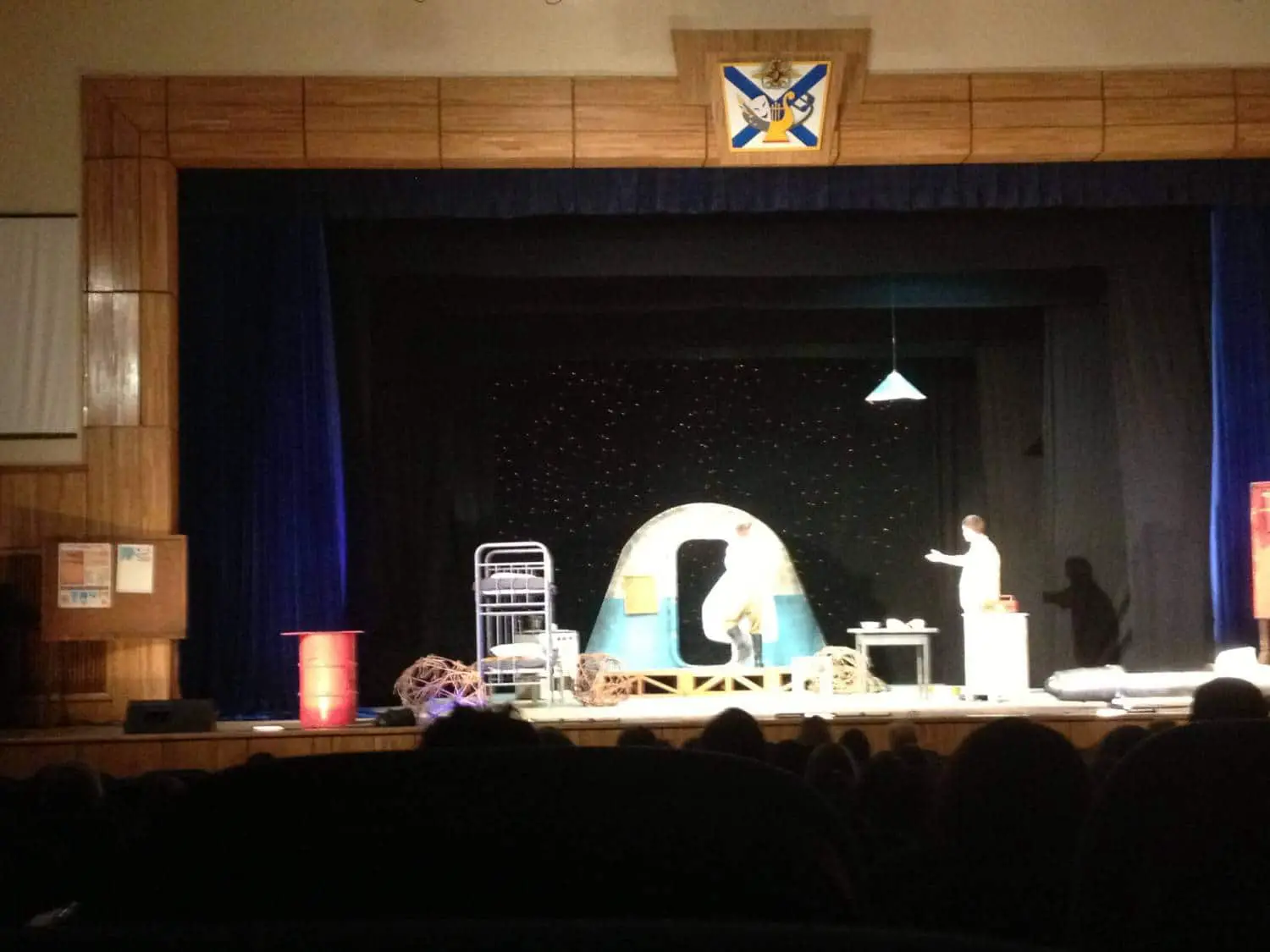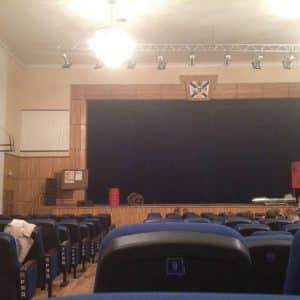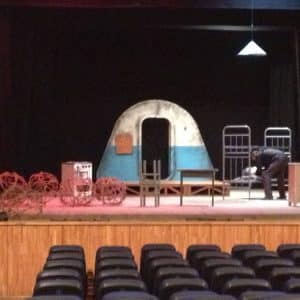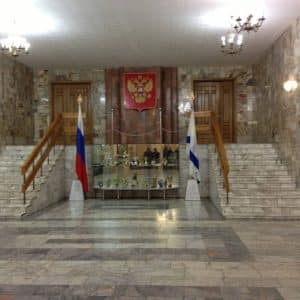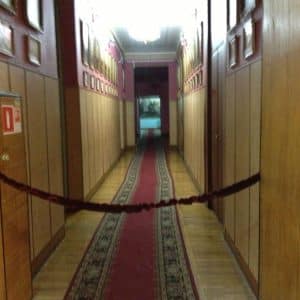“Chmorik” / “Чморик”
at Дом Офицеров Флота / The House of Navy Officers
Ул. Светланская, д. 48
Starts at 5 pm; Shows every month – check the theater for schedual
Cost: 200 rubles
Russia being a country so rich in the dramatic tradition, home to such greats as Chekhov, Gorkii and Ostrovskii, I was a bit worried that I had not yet been to a play in Vladivostok two and a half months into my journey here! This oversight was remedied quite recently when I was invited by a Russian friend to witness a production of “Чморик.”
It should be mentioned immediately that “Чморик” is a rude word in Russian slang that you won’t find in most dictionaries. The Internet gives various definitions, the most concise indicating that the word is an acronym: “Человек Морально Опущенный” (A person lacking morals); or Человек, Мешающий Обществу (a person who disturbs the social order). In English, the word is often rendered as “Shithead.”
The play, currently very popular especially among youth theaters in Russia, was staged in the Дом Офицеров Флота (Dom Ofitserov Flota; House of Navy Officers), which is a wonderful building in itself, replete with grand, wide staircases and expert paintings of naval ships on the sea under different conditions. The theater within the Дом Офицеров, while clearly designed more as an auditorium than a theatrical space (the chairs were actually desks and the stage was rather cramped) was also nicely decorated and quite comfortable, not to mention a perfect setting for the military subject of the play.
About “Чморик” itself, I will say that I had mixed feelings. The first act of the two-act play was interminable; it was only about an hour and a half long but it seemed at least twice that length. This was largely due to the fact that the exposition, in my opinion at least, took up an inordinate amount of time. The gist of it: in the late 1980s, almost immediately prior to the fall of the Soviet Union, in a remote outpost in the steppe, two young soldiers serving out their draft time have to cope with the unsure and uneasy existence that was army life at the time. The soldier who is “in charge” (i.e., he has been there longer), is ignorant and brutish, though well-meaning and ,in the end, kind-hearted. The second, who comes to serve at the beginning of the play, is, in contrast to the first, educated and gentile in his manners, and also puny where the other is stout, by nature quiet while the other is boisterous. In short, the soldiers are set up as polar opposites, and, as one might expect, the solder “in charge” turns out to be not quite as “in charge” as he thinks, as the new, more sensitive and perceptive soldier shows him another side of life. As they begin to come to a mutual understanding, the lower-ranking soldier’s sister comes for a forbidden visit. This is the end of the first act, but all throughout are interspersed lengthy philosophical meditations on life and its purpose and human nature in general, which are, at best, trite and, at worst, boring to the point of being somniferous (many in the theater were indeed asleep, I might add).
Mercifully, the second act was nowhere near as brutal, as this was the act in which all the main action was contained. Following the arrival of the lower soldier’s sister, and the ranking soldier’s admonition that this could not be, in walks the character rather transparently named Бес (Bes; Demon). He is an officer, who outranks the ranking solider, and upon seeing the under soldier’s sister immediately begins to formulate an evil plan. The rest of the play is occupied with the disclosure of said plan and the consequences thereof.
All in all, I can say that the play was very well-acted. The players performed with gusto, were very well-suited to their respective roles, and were in every aspect, quite professional. As to the subject matter, however, I could definitely have done without. I cannot say that I would recommend “Чморик” to others, but I am certainly glad that I had the experience.


